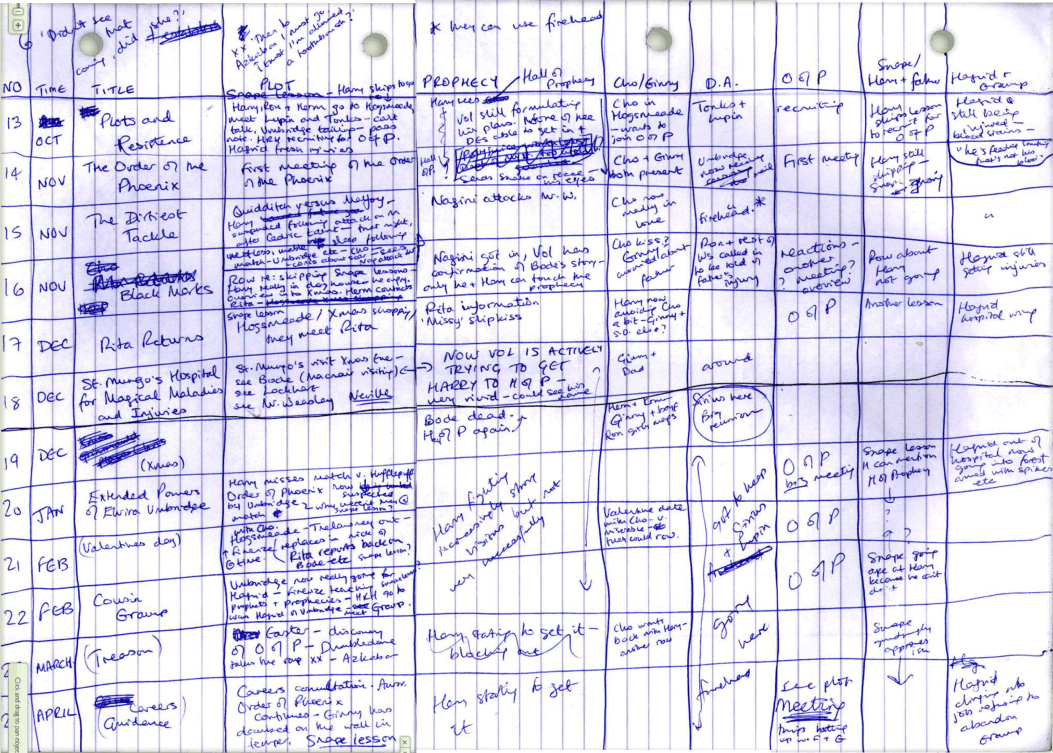
1. A wonderful and highly relevant article in this week’s New Yorker by James Surowiecki reviewing a new book on procrastination, The Thief of Time. A perfect storm of Law-related paralysis (also known as “perfectionism” – think Chinese Democracy), Romans 7-style inner divisions and general human silliness:
Philosophers are interested in procrastination for another reason. It’s a powerful example of what the Greeks called akrasia—doing something against one’s own better judgment. Piers Steel defines procrastination as willingly deferring something even though you expect the delay to make you worse off. In other words, if you’re simply saying “Eat, drink, and be merry, for tomorrow we die,” you’re not really procrastinating. Knowingly delaying because you think that’s the most efficient use of your time doesn’t count, either. The essence of procrastination lies in not doing what you think you should be doing, a mental contortion that surely accounts for the great psychic toll the habit takes on people. This is the perplexing thing about procrastination: although it seems to involve avoiding unpleasant tasks, indulging in it generally doesn’t make people happy. In one study, sixty-five per cent of students surveyed before they started working on a term paper said they would like to avoid procrastinating: they knew both that they wouldn’t do the work on time and that the delay would make them unhappy.
Procrastinators often succumb to this sort of perfectionism. Viewed this way, procrastination starts to look less like a question of mere ignorance than like a complex mixture of weakness, ambition, and inner conflict.
The idea of the divided self, though discomfiting to some, can be liberating in practical terms, because it encourages you to stop thinking about procrastination as something you can beat by just trying harder.
2. A stirring and vulnerable response to the miraculous rescue of the Chilean miners from Mark Galli (our recently announced 2011 NYC Conference speaker!) in Christianity Today. I would re-post the whole thing if I could:
When extraordinary things like this happen, it brings out the megalomania in some people. But I think a local Catholic priest had it right: “God has heard our prayers.” Lots of prayers from lots of people. And it was given.
When this sort of thing happens, I feel like I’m being set up. If prayer never “worked,” I could deal with it sensibly. I could just give it up. Or give up one type of prayer—intercession. Just stop praying that God would do this or that, change this or that. Prayer could just be communing with God. But when God answers prayer like this, it sets up this god-awful expectation that God gives to those who ask. “Ask and it shall be given” is a nice, warm saying, but it should really be, “Ask and sometimes it will be given.” Or more realistically, at least in my prayer experience, “Ask and once in a blue moon it will be given.”
“…Feeling hopeless […] characterizes my prayer life most days. I have so few important-to-me prayers answered that I’m afraid to pray for such things anymore. Who wants to be disappointed with God again? So I find stories like the answered prayer for the Chilean miners more irritating than inspirational. As a CNN story says, the miners “showed us there is hope even when the worst seems certain.” Well, for me when the worst seems certain, I have the hardest time having hope.
Here’s the lesson I have learned from Jesus, a lesson reinforced by four decades of failed prayers. It doesn’t matter how I feel when the worst seems certain. Jesus didn’t say, “Ask when you feel hopeful.” He just said ask. And he said it will be given.
Once we announce our desire to God, it’s his job to deal with it. Prayer is not manipulating heaven to fulfill our desires. It’s putting what we desire into the hands of a loving, if inscrutable, God and letting him fulfill it in his time, in his way.
3. As if the release of the Criterion edition of The Darjeeling Limited this week wasn’t enough, Wes Anderson has just completed a new commercial, this time in collaboration with Roman Coppola. The product in question is Stella Artois beer and the clip is delightful:
4. Two more fascinating recent discoveries are the footage of Eric Stolz playing Marty McFly in Back to the Future and J.K. Rowling’s chart of The Order of the Phoenix (click on the image to see it up close):
5. A priceless, understatement-of-the-year from a heartbroken David Arquette, reeling from his split with spouse Courteney Cox and unintentionally highlighting the destructive dynamic of judgment in relationships (ht MS):
For their 11th wedding anniversary this past June, [Courteney bought him a motorcycle. “She said to me, ‘I don’t want to be your mother anymore,'” he recalled. “And I appreciated that about her … She didn’t want to tell me, ‘Don’t do that.’ She didn’t want to nag me anymore.”
6. A couple of intra-Mockingbird notes: A. Audio files of the first three sessions of our series Good News for People with Big Problems that we’ve been running here in Charlottesville are now up on the Resources page of our website! A bunch of new sermons are up too. B. If you missed it earlier this week, be sure to check out the interview we did with The White Horse Inn about our new publication The Gospel According to Pixar. We’d love to get it into as many hands as possible, and we need your help spreading the word! C. Pensacola Mini-Conference is less than five weeks away! Stop procrastinating… and register now! D. RE: our 2011 NYC Conference, if you’re interested in receiving pre-registration materials, be sure to sign up for our mailing list:
P.S. iPhones in space! I love it.

COMMENTS
Leave a Reply















